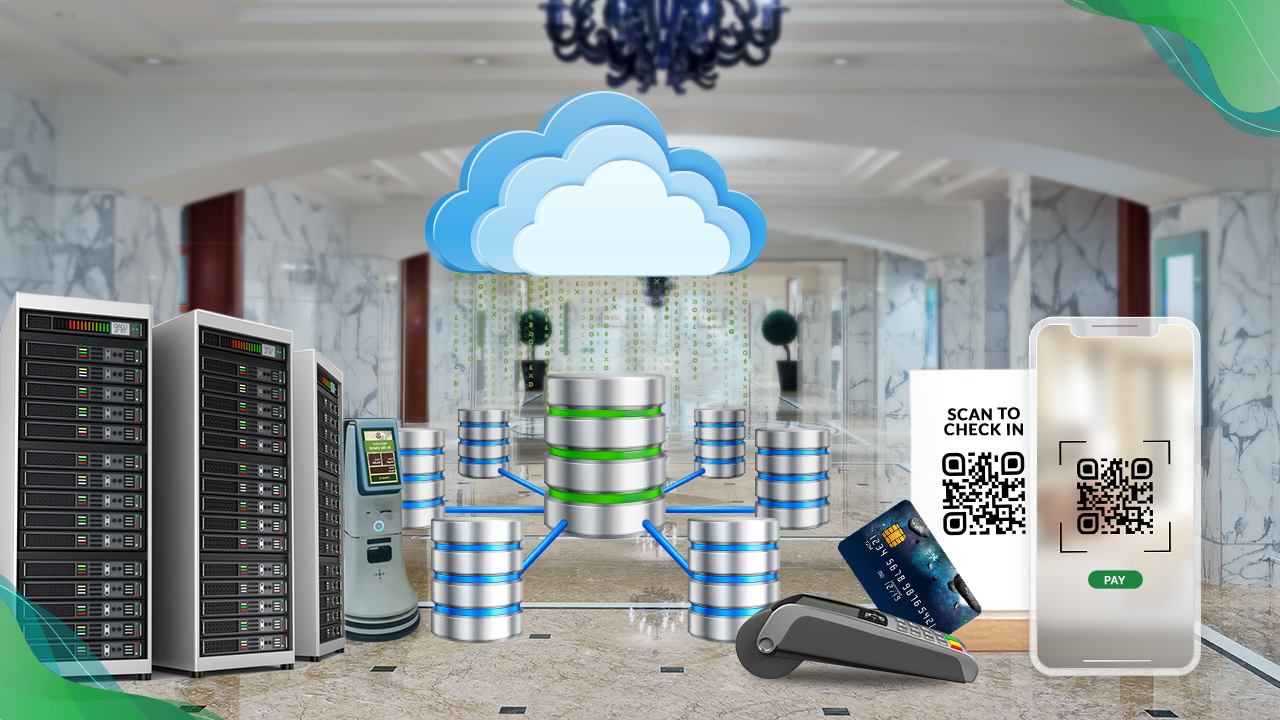The US traveler has eagerly waited to travel with an estimated 109 million Americans planning to travel during the current holiday season according to a latest AAA news report. While this is a staggering increase over the previous year, the fear of the OMICRON COVID19 variant and the emergence of IHU in Europe, progress has once again slowed down.
STR’s latest numbers for December 19-25 showed a sharp decline, with occupancy falling sharply to 44.3% recording an 8.7% decline. Hoteliers are actively looking into intuitive ways to address the trust gap to increase occupancy with technology still leading the way for most operators.
Rebuilding the hotel technology management strategy is simply essential now to ensure hotels are meeting service standards even with staff shortages, volatile demand, and ever rising uncertainty.
Hotel operators need a 360 redesign of their technology strategy, ensuring a complete overhaul that includes digitizing the front desk, back office, guest rooms, and the entire guest experience.
Automating The Guest Journey
Adding technology to the guest journey has demonstrated great potential according to several academic researches over the last two years. The introduction of self service tools like contactless check-in, QR code services, Bluetooth room keys etc. have boosted guest confidence while delivering multiple benefits to hotels.
Digitization in the guest journey has helped hotels to enact social distancing, enhance cleanliness, reduce health risk liabilities, and instill trust in travelers over this disruptive period. Self service technology and contactless services have therefore proven to be successful in managing the effects of COVID19.
The coronavirus pandemic has already accelerated technology adoption amongst both travelers and hospitality businesses alike. Allowing guests to personalize their entire experience through technology has not only been academically proven by researchers but also real life implementations through live examples like the Marriott Hotels Group.
Powered by their Bonvoy mobile app, Marriott Hotels have enabled their guests with the unique experience to book, check-in, engage, check out and pay contactlessly without a single human interaction. Similarly, other hotel franchises have integrated seamless guest technology services like robots, self service kiosks, tablet technology and other tools to completely redesign the hotel guest journey.
Cloud Based Hotel Operations Management
The repercussions of the COVID19 pandemic and its variants have caused great concern for hoteliers with massive layoffs already slowing down progress. The shortage of workers has thus led to a gargantuan gap.
Hotel operators thus have to resort to a minimalist approach and therefore simplify their operations management. The idea is really to ensure managers are always informed and connected with their property. Cloud based property management software is increasingly becoming popular because of this underlying gap.
Hotel staff and management have the opportunity to have constant information and access to the property management system. Cloud based PMS deliver breakthrough mobile access and connectivity to keep managers in the know no matter where they are.
Oracle has already rolled out its Cloud Based implementation of their classic Opera PMS software. The great aspect of cloud based PMS is their added ability to deliver real time insights that enable hoteliers to make informed strategic decisions like room pricing.
Cloud based PMS solutions are also a perfect catalyst to induce both cost and time savings during this time. Since staff are limited and operations must continue with haste, it is essential for every element of the hotel to operate like a well versed symphony.
Marketing & Distribution
An essential element for hoteliers to concentrate on is to completely rethink the way their services are marketed and distributed to their audiences. Smartphones are already changing the way travelers book, enjoy and review their holidays with social media playing a massive role in highlighting their experiences with hospitality brands.
Hotel operators need to redesign their marketing strategy to increase the adoption of digital marketing solutions. Enhancing reach through websites, social media profiles, and distribution services like AirBnB is becoming very popular in the hospitality industry.
Accessing these channels guarantees reaching larger audiences and different segments that the provider can concentrate on. Smartphones are an essential for modern travelers with airlines, trains, taxis, hotels, food, and other tour information readily available to them through apps, websites, and social networks.
Having an active website and social media presence is also crucial for hoteliers to constantly stay engaged with their guests. This strengthens guest trust in the brand and enables hoteliers to directly target their relevant audiences without personal interactions.
Digital marketing and distribution is also essential for hoteliers to attract businesses and organizations. Being the largest contributor to the hospitality sectors, business guests are still less than half the level they used to be in 2019. Reaching out to these businesses and instilling trust in the corporate sector becomes easier for hospitality providers through digital sources.
Conclusion
As we move ahead in 2022 hotel technology management and operations optimization will be the leading mantras for hotel operators. It is essential for hoteliers to realize the potential of technology and how it can help them enhance revenue during the coronavirus pandemic.
Professional technology management is already proving its worth in franchise and medium sized hotels across the world. To learn more about technology management and how it can help your hotel, message us now on our Live Chat window located to the bottom right of your screen.




